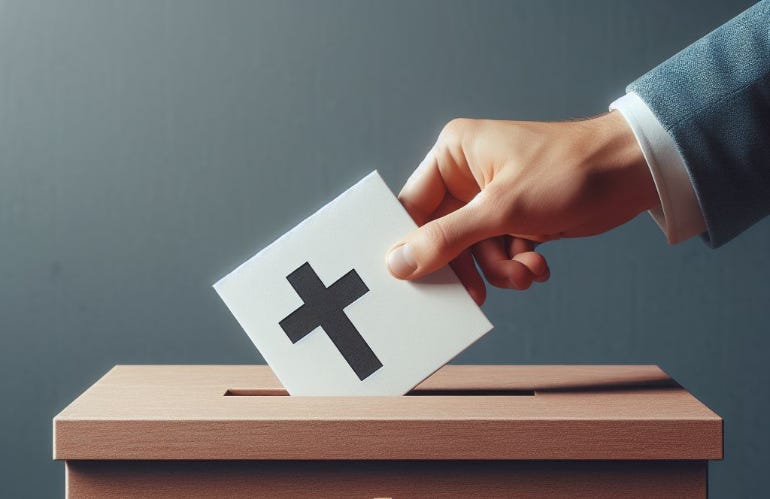Christians and the 2024 election
As voters head to the polls, the intersection of faith, politics, and civic responsibility becomes increasingly relevant.
Baptist Report Opinion
The 2024 elections are poised to be of historic significance for both the United States and the world. As voters head to the polls, the intersection of faith, politics, and civic responsibility becomes increasingly relevant.
This year, perhaps more than ever before, the presidential election appears to loom as a pivotal moment in the U.S., with the potential for far-reaching consequences depending on which candidate is elected as leader of the free world.
As of now, it appears likely to feature a rematch of the 2020 election between President Joe Biden and former President Donald Trump.
Their policy stances diverge significantly: It will be a match between the radical and progressive policies of the Biden Administration vs. the contrasting approach of Trump’s more conservative/moderate policies.
In the past three-plus years Americans have witnessed President Biden’s alignment with many progressive policies, including:
Open borders: A stance that has implications for immigration and national security.
Climate alarmism: Advocacy for addressing climate change through stringent measures.
Abortion support: An extreme policy and commitment to abortion and a commitment to the reproductive rights of women over the rights of unborn babies.
Expanding the war in Ukraine: Involvement in geopolitical conflicts.
Trump’s contrasting approach includes many areas of differing views on these issues:
Oil and gas production: Advocacy for increased domestic energy production.
End to electric vehicle subsidies: A focus on market-driven solutions.
Peace negotiations in Ukraine: A diplomatic approach to international conflicts.
Withdrawal from globalist agenda: A preference for national interests over global cooperation.
Beyond the U.S., 2024 is a global turning point and a critical year for leadership elections worldwide.
64 countries (plus the European Union) are set to hold national elections, affecting nearly half the world’s population.
The outcomes will reverberate for years, impacting economies, trade, and international relations.
The adage, “Politics stops at the water’s edge,” no longer holds today. Domestic politics now spill into global affairs.
Foreign elections directly impact the U.S. economy, from trade relations to geopolitical stability.
In retrospect, 2024 will likely mark a significant turning point, regardless of the election outcome. The global stakes are high, and voters’ choices will resonate far beyond national borders.
Potential ramifications for Christians and the church
Ministers will grapple with addressing politics in their sermons, given the diverse political views within their congregations. However, this divide also allows the church to model proper civic behavior for the rest of the country.
The 2024 elections will test the religious faith of many voters. A divided nation will choose its leaders, and religious communities will play a decisive role in shaping those choices.
For Christians, issues related to religious liberty are paramount. The ability to worship freely and live according to beliefs is central to their identity. Therefore, casting votes for leaders who understand and protect this fundamental right is crucial.
Despite declining organized religion participation, religious rhetoric remains intense in the political sphere.
In the 2024 presidential election, religion will likely influence voters’ decisions, just as in previous years.
In conclusion, as Christians and citizens engage in the 2024 elections, faith, politics, and civic responsibility will intersect. The upcoming election holds immense significance, with potentially far-reaching consequences for the United States and the world.
The diverse political views within congregations provide an opportunity for the church to model proper civic behavior and engage in nonpartisan dialogue. Religious communities, including Baptists, have a unique role in advocating for religious liberty and shaping the choices that will impact the fundamental rights of worship and belief.
As the world watches, the decisions made in 2024 will resonate far beyond national borders, making it a pivotal time for Christians to engage in respectful dialogue and exercise their civic responsibility.
Sources: dailyreckoning.com, ussanews.com, economist.com




